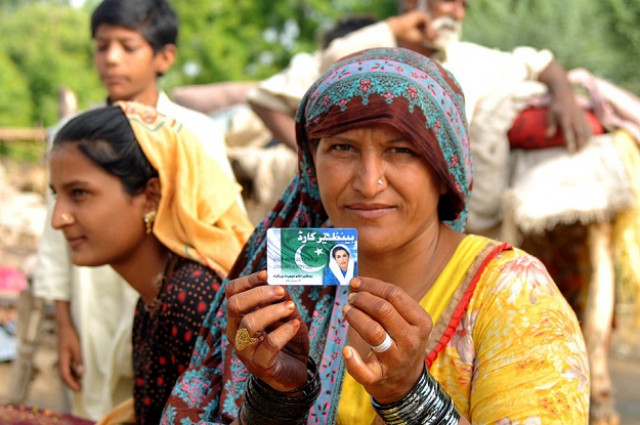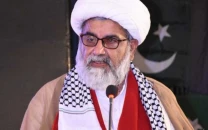Clearing misconceptions: BISP not a poverty reduction tool, says Dar
Says programme only reducing financial problems

Finance Minister says programme only reducing financial problems. PHOTO: www.gov.uk
The Benazir Income Support Programme (BISP) is not a poverty reduction programme, the finance minister said in a statement submitted to the lower house of parliament on Saturday.
Ishaq Dar clarified that the BISP was launched for the poorest of the poor as a safety mechanism against fuel and food inflation. “It is an income support programme to provide a minimum income package to the poor, to protect the vulnerable population against chronic and transparent poverty.”
Sharing statistics with the National Assembly during the question hour, the minister said that over Rs315 billion had been disbursed to more than 500,000 beneficiary families across the country since the programme’s inception seven years ago, adding that Rs18.94 billion had been disbursed by the Pakistan Baitul Mal (PBM) to more than 1.1 million beneficiary families. “For the first time, the most vulnerable people have access to a basic safety net programme that has positively impacted their lives.”
On the other hand, the PBM is not directly dealing with the task of reducing the poverty ratio. “However, through ongoing schemes and programmes, the PBM is contributing towards reduction in overall financial problems by providing financial and social benefits to the most neglected segments of society.”
The government increased BISP funds allocation from Rs40 billion in 2012-2013 to Rs75 billion in 2013-2014 and then to Rs97.15 billion in 2014-2015. The share has been further increased to Rs102 billion for the current fiscal. Despite doling out billions of rupees, the programme is only providing a minimum subsistence of Rs1,500 to eligible families.
Economist Dr Kaiser Bengali, who was the first head of the BISP, agreed that the amount was insufficient, but he echoed Dar’s views: “This was never designed to be a poverty reduction programme. You cannot reduce poverty this way.”
He said that it was a social security payment such as in the United States or Western European countries, where they pay unemployment insurance to the people. “Yes, a vast amount of money has been spent and will continue to be spent. But no one should expect that this amount will eradicate poverty. It is a supplementary programme.”
Meanwhile, Pakistan Peoples Party MNA Nafisa Shah stressed the need for a reassessment of the BISP recipients, adding that it was important that the programme continued. “The minimum subsistence programme is important for countries like Pakistan, which are vulnerable to natural disasters.”
She criticised the discontinuation of the BISP’s Waseela-e-Haq programme, which promoted capacity building of the recipients through skills development. As a member of the opposition, she said her party could call upon the government to make assessments regarding the impact of the programme.
Published in The Express Tribune, November 29th, 2015.



















COMMENTS
Comments are moderated and generally will be posted if they are on-topic and not abusive.
For more information, please see our Comments FAQ